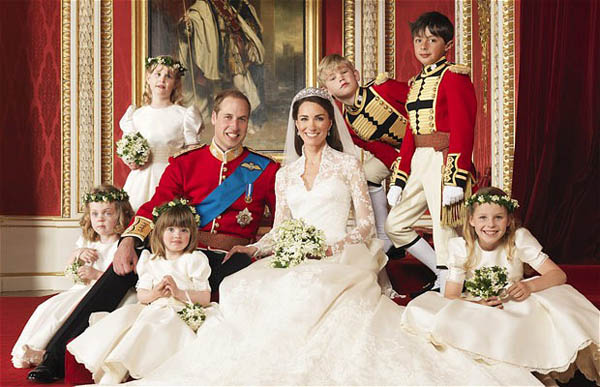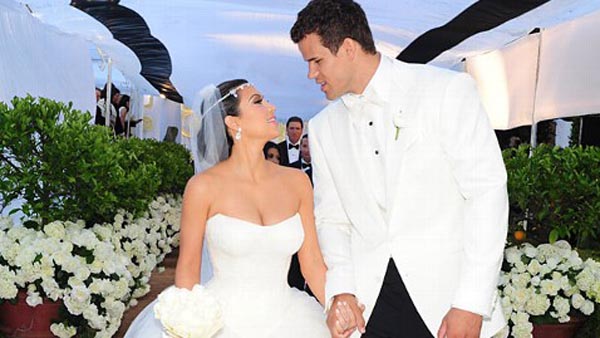
Before the advent of modernism at the turn of the 20th Century, narratives usually ended with an engagement, a wedding, or a death. The protagonists of the relatively new novel form would find themselves paired off at the altar, or suffering their own demise. This narrative move demonstrates the power of marriage as a kind of full stop, a solution, a smoothing-over, the point that a relationship should be headed, even if it may fail on the way. It?s significant that although writers have since cast aside marriage as the standard form of plot resolution, marriage itself still remains a potent cultural force in the 21st century.
I want to make it clear that I?m talking about a Western cultural understanding of marriage, which over the course of the 20th and 21st centuries has become a predominantly secular affair, where subjects are able to freely choose their own spouses, and virginity and chastity are no longer prerequisites. This is based on current marriage trends, although there will always be specificities and areas of difference. It?s also important to recognise that the concept of marriage has an array of different meanings and traditions in other cultures, both secular and religious, which are far too vast for me to even attempt to discuss here.
What I want to take up is the way in which the idea of marriage, and the wedding ceremony itself, is a powerful play of language, that it is in its essence an act of naming, an act which legitimises a relationship in the eyes of the Other and the State. Marriage is a discourse that cannot be separated from language, from the naming of ?husband? and ?wife?: subject states are proscribed and inscribed in vows, in narrative, a naming that attempts to map out, fix and contain the subject. I am suggesting here that marriage discourse fundamentally highlights Jacques Lacan?s notion that there can be no outside of language: marriage is a specific move in language (and in some ways narrative) that suggests authenticity and legitimacy, an inscription that carries with it the traditions of church and state. The very nature of the wedding ceremony itself suggests this ? it is a rhetorical play that binds the couple through vows.
Whether the ceremony is religious or secular, the couple avows their love and commitment to a public group, to the Other, to an authority: they ?promise?, they are asked whether they understand the seriousness of the commitment, whether there is any lawful cause why they shouldn?t be married and finally they are pronounced husband and wife. The subjects are categorised, labeled and inscribed new roles. Most importantly the modern wedding ceremony is performative in much the same way that gender roles have been described as performative. This is made all the more pronounced in the way most brides still wear white dresses, the symbol for virginity, despite often having been in numerous previous relationships, and in most cases, having already had sex with their future husband.

But fundamentally there is a concealment here. This language, the promises and the commitment of the modern wedding ceremony, hides what Slavoj Zizek labels the ?bureaucratic formalism? that marriage actually is, but also, more importantly, marriage as an agreement entered into with ?the big Other?. (Zizek, ?Hegel on Marriage?, 2012) That is, the ceremony is metonymic; it is only a part of the whole, the whole being the mechanisms of the state, the interpellation of the subjects in law, operating within the system of late capitalism, and playing out bourgeois anxieties. But, returning to this Lacanian construct of language, there is also an absence at the centre of this concealment. Modern marriage discourse operates as a signifying chain that conceals its inherent fragility: that these vows and rhetoric can easily be undone/divorced from the previous annunciation, the uneasy notion that behind this signifier there is only the endless of deferral of meaning, that the inscription of marriage does not necessarily bring with it life-long commitment and fidelity. Lacan describes this as an inherent aspect of language, the way in which ?the ring of meaning flees from our grasp along the verbal thread.? (Lacan, ?The Agency of the Letter in the Unconscious?, 1957) Perhaps Kim Kardashian and Kris Humphries? 72-day marriage caused such outrage and scorn because it opened up this frailty with the full-force of modern media exposure, the ease with which the ceremony, the authenticity, the agreement with the Other could be absolved.

And yet marriage still remains the benchmark for legitimacy in terms of modern relationships. Why? Because even though there is the prospect of divorce, or infidelity, marriage itself is perceived as fixed, whilst the object of love is considered changeable. Marriage has such power as a signifier that it sees all other words describing relationships (boyfriend, girlfriend, partner, lover) seem somehow illegitimate, not serious, not professing any lengthy commitment. This is evident in the way long-term couples struggle to find an adequate name to describe their relationship state, or when experiencing relationship problems they resort to the phrase ?it?s like a marriage? or ?it?s like getting a divorce?, once again drawing on a specific language discourse to inscribe a certain level of authenticity and authority. It?s evident in the way that previously divorced subjects return (sometimes more than once) to the wedding altar, and perhaps most importantly, it?s evident in the way same-sex couple want to claim, and be given access to this language, to this ceremony.
So why the big fuss? Some people want to get married, others don?t, it?s a personal choice, don?t force your views on other people, I?m not married and it doesn?t bother me, I don?t really care whether I use the word boyfriend or partner. The answer can be found in the current debate surrounding same-sex marriage. In some ways the arguments for and against same-sex marriage, civil unions, and the legal consequences of these unions, opens up the very framework behind marriage, it questions what the ceremony and language represents, attempts to unravel the signifying chain. But this is itself difficult and possibly endless. Yet when a cultural structure systematically and deliberately denies legal rights to one group, whilst giving it to another, when a legal ceremony professes to advocate legitimacy and authenticity and therefore allows access to other legal rights (health care, super and so on), even when that ceremony may be annulled 72 days later, it must be opened up to questioning and examination. It is because of this, because of the inherent contradictions and failings of marriage discourse, that it should and must be interrogated.
?
Tags: ceremony, civil union, Lacan, language, marriage, same-sex marriage, signfication, wedding, Zizek
Source: http://htmlgiant.com/random/i-now-pronounce-you/
apple stock pilar sanders andrew young real life barbie zipper armenian genocide asteroid mining
No comments:
Post a Comment
Note: Only a member of this blog may post a comment.